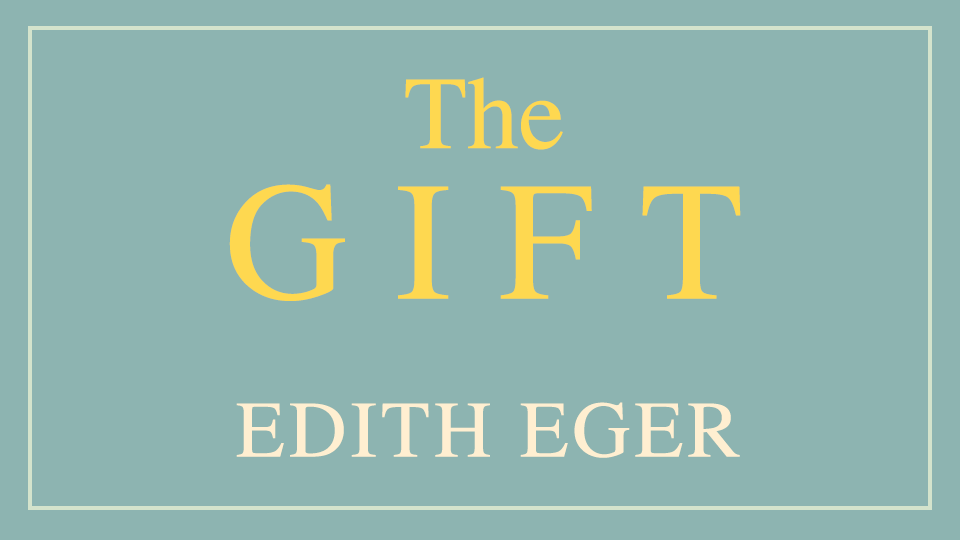When your heart aches at the cacophony of hawkish voices that surround you, inciting widespread fear that leads to social apathy or political capitulation, what do you do? You turn to masters of survival for advice. One such master is the giant that is Edith Eger.
American psychologist Dr Edith Eger is a holocaust survivor who, at the tender age of 16 was made to dance for the SS officer who had just sent her parents to the gas chambers at Auschwitz. And she did dance, and she suffered immeasurably, but she survived, and she has lived a full, deeply meaningful life. So much so that at the age of 90, she wrote her first book The Choice, which sold more than a million of copies, became a New York Times bestseller and even got on Oprah’s radar. The Gift, which is the book I’ve read and drawn tremendous inspiration from in these tumultuous times, is her second book, written when she was 92. It contains an abundance of wisdom! She shares her accumulated insights on how to survive in 12 short lessons (too short at times) that you can’t help but feel uplifted by, while marvelling at the strength of the human spirit.
The 12 lessons that Eger shares provide a pattern on how to live a life of freedom, regardless of one’s external circumstances. Three truths in the book illuminated my way ahead so brightly that I feel compelled to share them. I was intellectually and emotionally mesmerised by her rich definitions of hope, expression and freedom.
I am yet to come across a definition of hope as elegant and resonant as Edith Eger’s in The Gift. More broadly, the pithy but profound expressions in her writing should feature in communication textbooks as triumphant exemplars of communicating with impact.
Edith Eger argues that freedom is a state of mind, not an external circumstance. It is a choice that we get to make every day. She explains that what helped her survive the inhumane conditions in the concentration camp was the free world she created in her own imagination, a world where she was happy, danced, loved, cooked with her family and partied with friends. A world no SS officer could ever take away. A world where she “could”, and “did” where she “chose”.
But to choose freedom we need to feel hope, Eger argues. She defines this as twofold: an awareness of the transience of suffering combined with a curiosity for the future. In her own words hope is “…the awareness that suffering, however terrible, is temporary; and the curiosity to discover what happens next. Hope allows us to live in the present instead of the past, and to unlock the doors of our mental prisons.”
Eger also explains the difference between the mentality of a survivor and that of a victim. “Victims ask, ‘Why me?’. Survivors ask, ‘What now?’”, she says before reminding us that suffering is universal and inescapable but “victimhood is optional.” “To choose hope is to choose life.” Eger’s punchy aphorism penetrates deep within me, because I know that I am at a precarious crossroads where I am faced with a choice between the road of hope or the road of despair.
Edith Eger encourages us to seek to express the inner and most hidden parts within us. She warns us that repressing self-expression leads to depression. Once again, she summarises it in a simple and beautiful expression: “the opposite of depression is expression”. In her book Eger explains that for years she tried to escape the anguish she had felt in Auschwitz by burying her story and the feelings attached to it deep inside her until she saw that her secret inadvertently hurting her children. So she learned not only to express her pain but to grow from it. “You can’t heal what you don’t feel”, so “feel so you can heal” she reveals and invites. I absorb like a sponge this truth she finds so easy to articulate.
Eger’s captivating philosophy of compassion and self-compassion culminates in her candid and poignant analysis that we all carry a Nazi within us. That part which judges harshly, which victimises and feels no compassion but only hunger for domination. Eger believes that we are born to love but learn to hate through socialisation. Freedom consists in making the choice to love when faced with the option to hate.
I will leave you with the ever-more relevant, astute, humane and compassionate analysis of the world and human nature that Eger leaves us with in her Afterword to The Gift, which she wrote in 2021, post-pandemic. Never has it been more relevant than today.
“All over the world, a resurgence of fascism looms. My great-grandsons stand to inherit a world still gripped by prejudice and hate, where children yell racial epithets on the playground and carry guns to school, where nations build walls to deny asylum to fellow humans. In this state of fear and vulnerability, it’s tempting to hate the haters. But I feel sorry for people who are taught to hate. And I identify with them. What if I’d been born a German gentile instead of a Hungarian Jew? What if I’d heard Hitler proclaim, ‘Today, Germany, tomorrow, the world’? I, too, could have been a Hitler Youth, a guard at Ravensbrück. We’re not all descendants of Nazis. But we each have a Nazi within. Freedom means choosing, every moment, whether we reach for our inner Nazi or our inner Gandhi. For the love we were born with or the hate we learned.”






